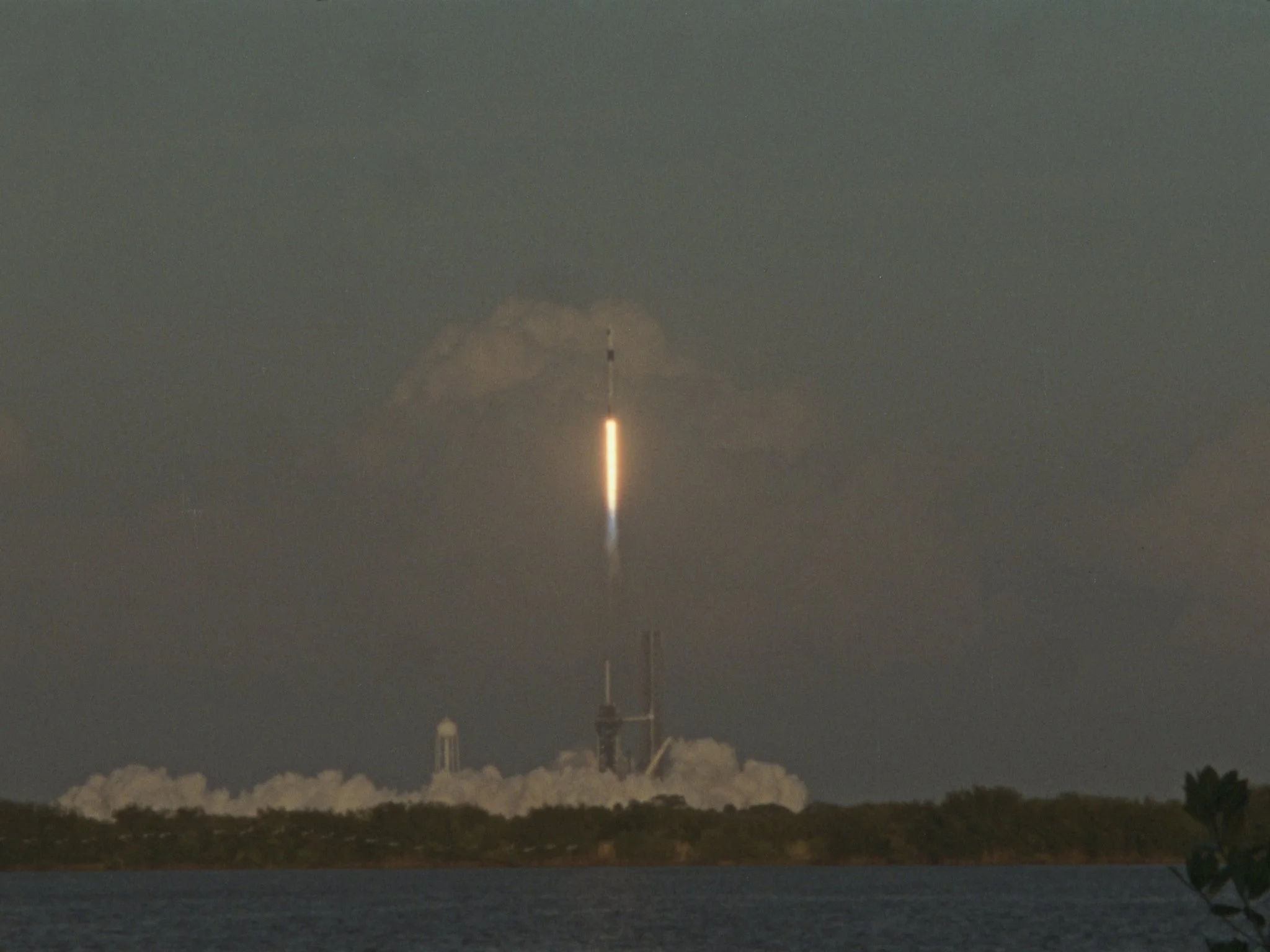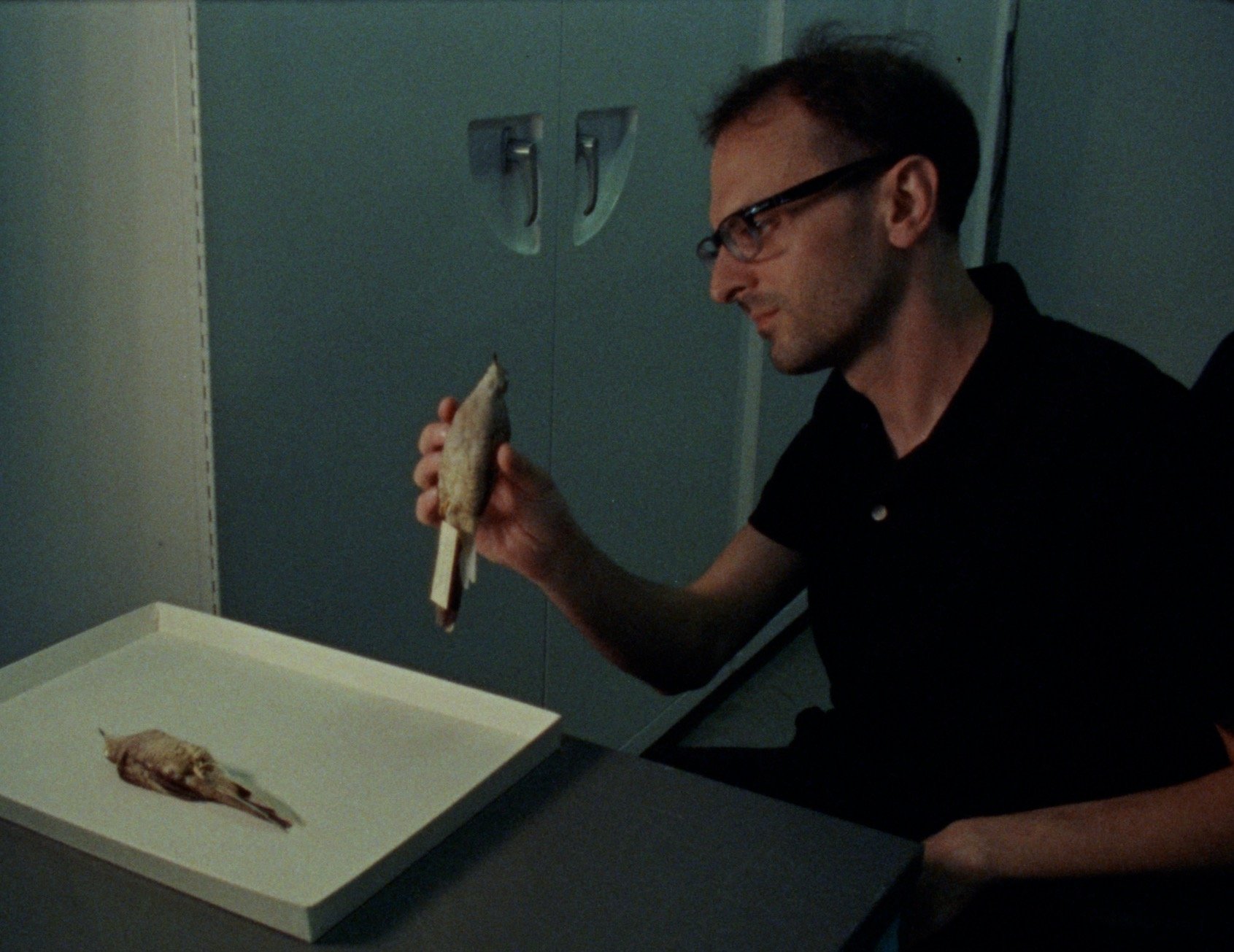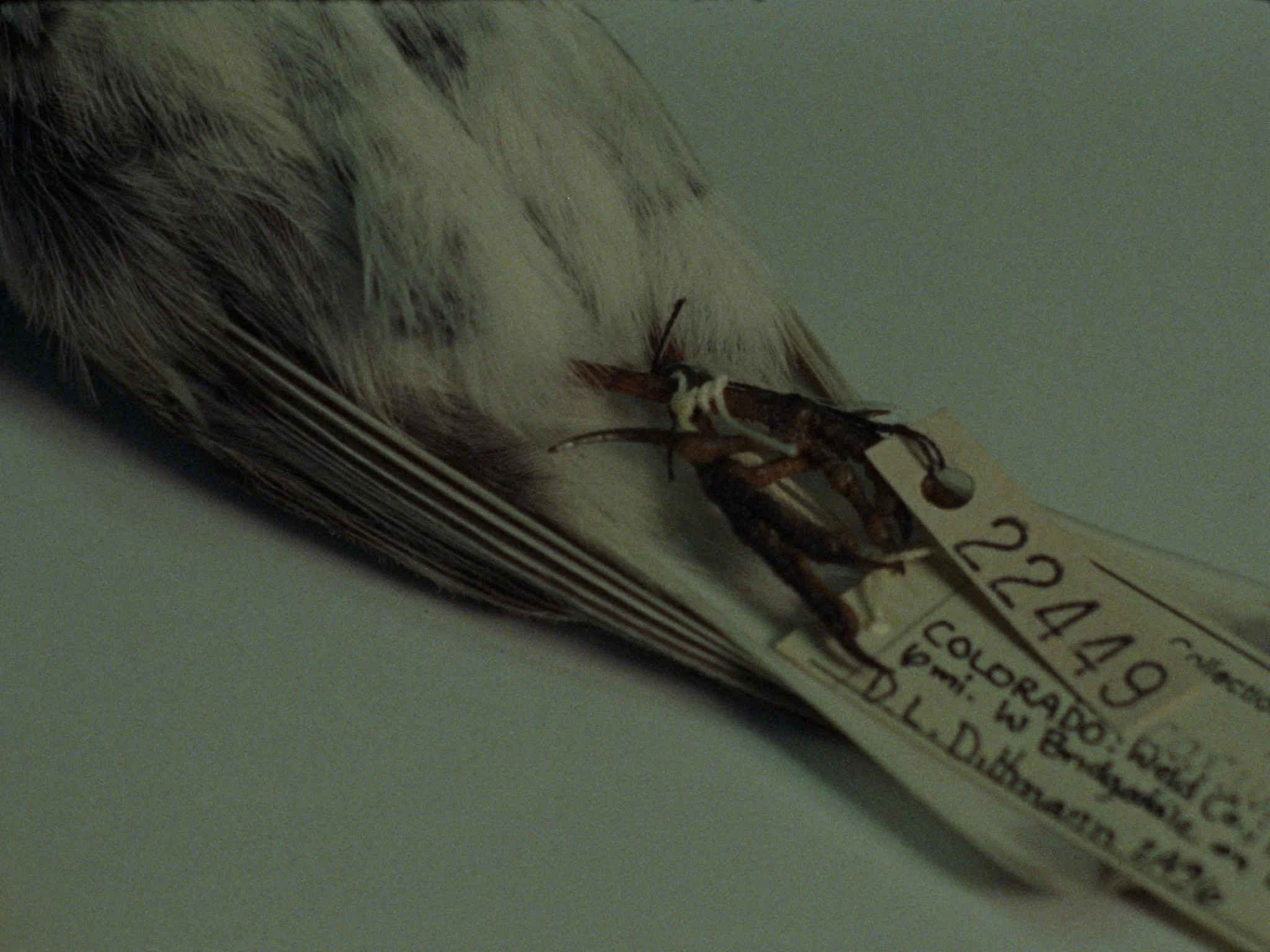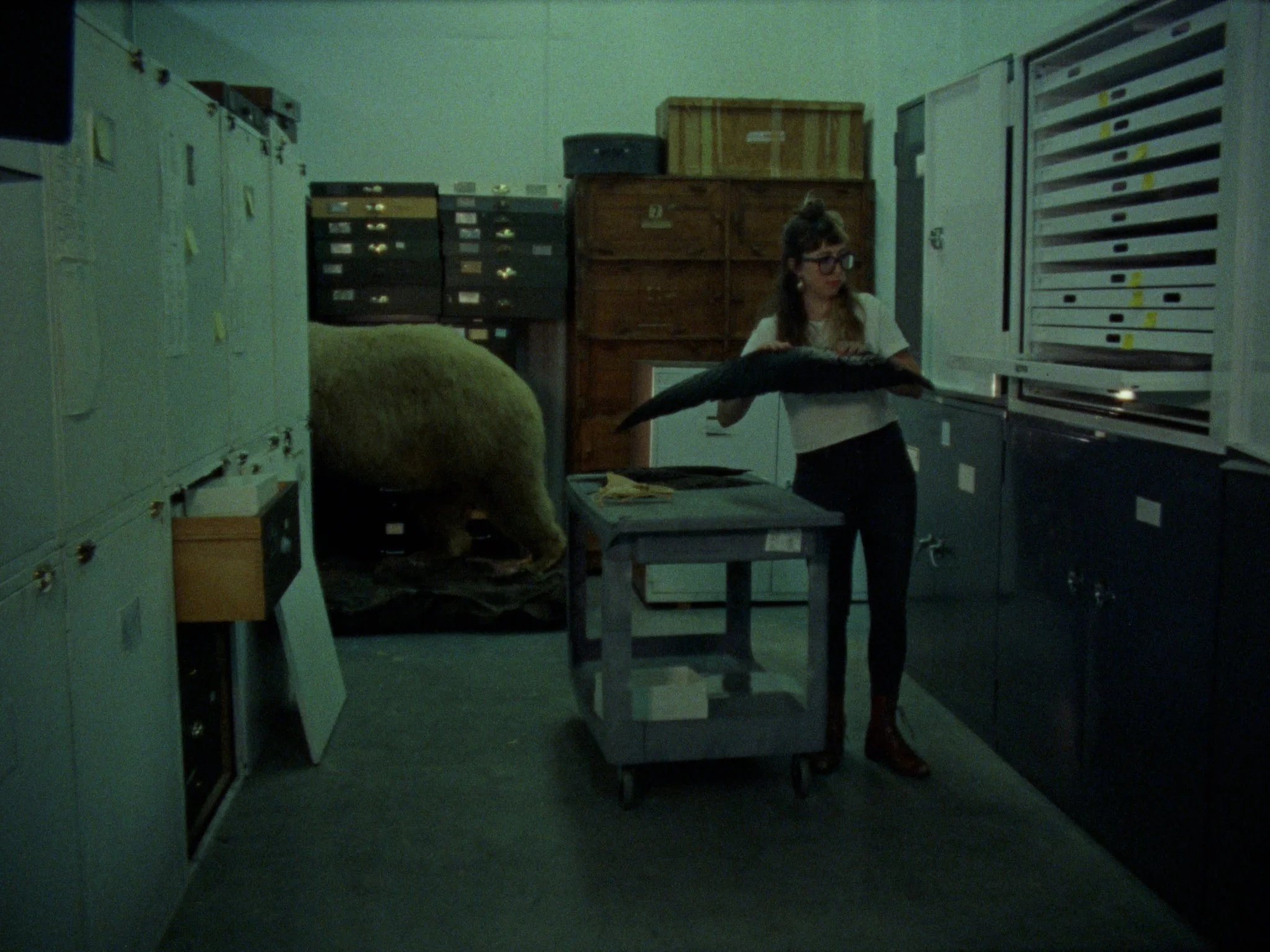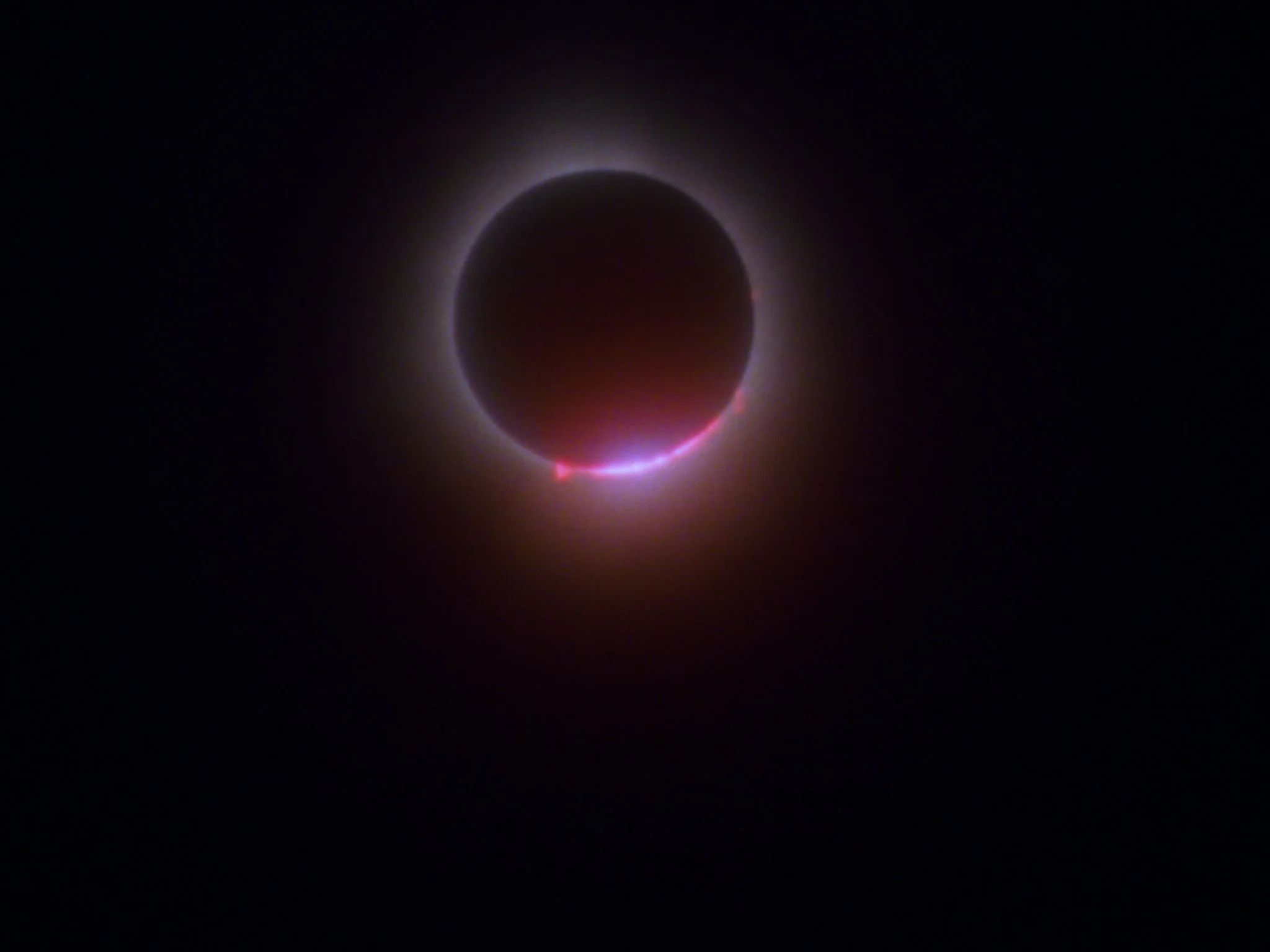FIRST BREATH ON MARS - mythography #3
Director / Cinematographer / Editor: Malic Amalya
Assistant Director / Original Score: Nathan Hill
Color Grading / Sound Mixing: Clovis Stocchetti
Official Trailer - First Breath on Mars
16MM WITH OPTICAL SOUND
20 minutes
2025
Interview with: Dr. Robert J. Driver, ornithologist
Mission to Mars Narrator: Hermon Getachew
DESCRIPTION
First Breath on Mars is an experimental 16mm film that investigates colonialist ideologies through the theme of flight. Inside the Earth’s atmosphere, the film chronicles the development of ornithology in the United States. Outside the Earth’s atmosphere, the film probes into developments in space colonization.
ARTIST STATEMENT
In 2010, British astrophysicist, Stephen Hawking warned, “If aliens ever visit us, I think the outcome would be much as when Christopher Columbus first landed in America, which didn’t turn out very well for the Native Americans.” Hawking’s admonition names settler colonialism as an existential threat to life on Earth while, simultaneously, deflects this fear onto potential alien visitors and minimizes current crises on Earth. First Breath of Mars unpacks Hawking’s prognosis by critically examining cultural metaphors, doctrines, and practices connected to colonialism and flight, including space travel and the classification of birds.
Common English names of North American birds is a product of – and reflects the values of – settler colonialism during the 19th century, including white supremacy, genocide, and chattel slavery. For example, Scott’s Oriole was named after US General Winfield Scott. In the 1830s, General Scott led, orchestrated, and implemented the Trail of Tears, the forced displacement of Indigenous tribes from the Southeastern United States to Oklahoma.
In the present day, developments in space tourism and the militarization of space define the 21st century, while goals of space colonization continue to dominate popular imagination. In 2001, American billionaire, Dennis Tito, became the first space tourist. Meanwhile, Jeff Bezos founded Blue Origin in 2000, Elon Musk founded Space X in 2002, and Richard Branson founded Virgin Galactic in 2004. Then, in 2019, President Trump established the space force branch of the United States Department of Defense. Emotional, financial, and scientific investments in space science range from claiming territory on the moon for nuclear reactors, making humanity multi-planetary by terraforming Mars and finding a “New Earth,” profiting off of space tourism, and conducing warfare from and in outer space.
In late 2023, the American Ornithological Society (AOS) announced they were renaming all of the bird species which had originally been named after people, many of whom were white colonizers and enslavers. In their statement, AOS wrote, “North America has lost nearly 3 billion birds since 1970.” They continued with a quote from their Executive Director and CEO, Judith Scarl, “’To reverse these alarming bird population declines, we need as many people as possible to get excited about birds and unite to protect them.’”
As the AOS statement notes, decolonization is directly tied to conservation. In a culture that actively refuses to acknowledge and make reparations for genocide and slavery, space warfare and the contemporary space race further exasperates environmental racism, climate displacement, and the future habitability of Earth. First Breath of Mars asserts that scientific advancement at the expense a feminist, anti-fascist, anti-racist, anti-capitalist framework will always lead to mass suffering and death.
Robert Driver received his B.S. in Biology from Muhlenberg College in 2009 and his M.S. degree in Biology in 2017 from Villanova University. In 2022, Robert received his PhD in Biology from East Carolina University. Robert is currently an NSF Postdoctoral Research Fellow in Biology in the Department of Molecular Genetics and Microbiology at Duke University, in the lab of Dr. Hiroaki Matsunami, where he researches bird olfactory receptors and bird sense of smell.
Dr. Driver examining an Inca Dove, 2025
A close up of the “long spur” on the hallux of a Thick-Billed Long Spur.
Sound recordist, Rachel Zingone, putting away owl wings.
REFERENCES / RECOMMENDATIONS
AOS Pilot Project to Change Harmful English Common Bird Names. American Ornithological Society, 2024.
“Areology (MARS) with Dr. Jennifer Buz.” Ologies with Alie Ward, 2018.
Better Living Through Birding: Notes from a Black Man in the Natural World. Christian Cooper, 2024.
The Disordered Cosmos: A Journey into Dark Matter, Spacetime, & Dreams Deferred. Chanda Prescod-Weinstein, 2021.
Doppleganger: A Trip into the Mirror World. Naomi Klein, 2023.
How the Word is Passed. Clint Smith, 2021.
How to be an Antiracist. Ibram X. Kendi, 2019.
Mythologies. Roland Barthes, 1957.
“The Rise of End Times Fascism.” Naomi Klein & Astra Taylor, 2025.
“Towards Redressing Inaccurate, Offensive, and Inappropriate Common Bird Names.” Robert J. Driver & Alexander L. Bond, 2021.
“Vivian Jenna Wilson on Being Elon Musk’s Estranged Daughter, Protecting Trans Youth and Taking on the Right Online,” Teen Vogue, 2025.
“While NASA was Landing on the Moon, Many African Americans Sought Economic Justice Instead.” Bryan Greene, 2019.
“What’s in an English Bird Name?” Robert J. Driver, 2021.
Whitey On the Moon. Gil Scott-Heron, 1970.
Who’s Afraid of Gender? Judith Butler, 2024.
X Man: The Elon Musk Origin Story. Jill Lepore, 2025.
Made with the generous support of
Emerson College’s Faculty Advancement Fund Grant and
The Norman & Irma Mann Stearns Distinguished Faculty Award
THE MYTHOGRAPHY FILM SERIES
Malic Amalya’s mythography films are three 16mm experimental-documentaries: RUN! (2020), Living Lessons in the Museum of Order (2023), and First Breath on Mars (2025). Inspired by French semiologists Roland Barthes’ analysis in Mythologies (1957), each film unearths – and untethers – tacit social values embedded in specific locales within the United States.
Using a collage-like editing style, original documentary footage merges with archival footage, scripted scenes, and abstract images. These visual and audio amalgamations create aesthetic, emotional, and ideological connections across seeming disparate historical landmarks, national monuments, and tourist attractions. This non-linear approach to documentary formally reflects an intersectional trans feminist analysis rooted in decolonization, prison abolition, anti-war activism, and environmental justice.
The first film in the series, RUN! (2020), traces how technologies of war structure landscapes, technological advancement, community rituals, entomology, pandemic management, and even notions of LGBT liberation. RUN! includes documentary and scripted scenes from sites of nuclear industry in New Mexico, as well as a reenactment of queer filmmaker Jack Smith’s Song for Rent (1969).
The second mythography, Living Lessons in the Museum of Order (2023), was filmed primarily at and around Alcatraz Island in the San Francisco Bay and SeaWorld San Diego. The film surveys the carceral logics of tourism in an age of mass incarceration and mass extinction.
The third mythography, First Breath on Mars, investigates colonialist ideologies through aerodynamic, mechanical, and ballistic flight. Inside the Earth’s atmosphere, the film chronicles development of ornithology in the United States. Outside the Earth’s atmosphere, the film probes dreams of and developments in space colonization.
